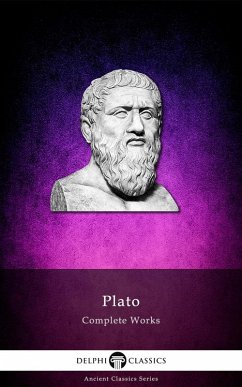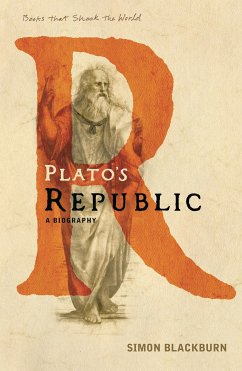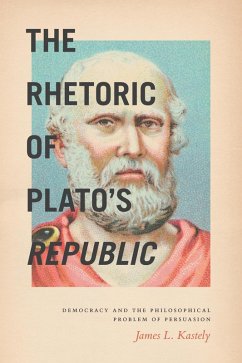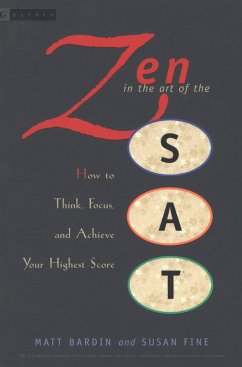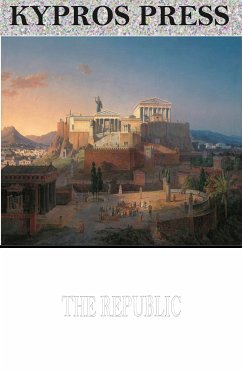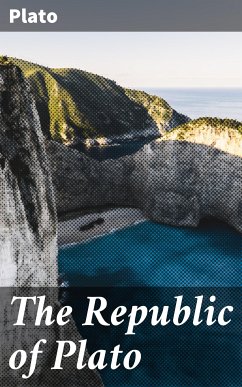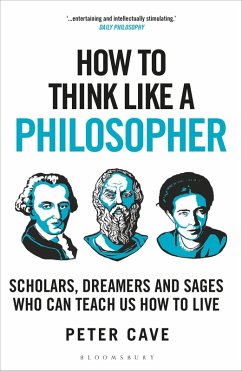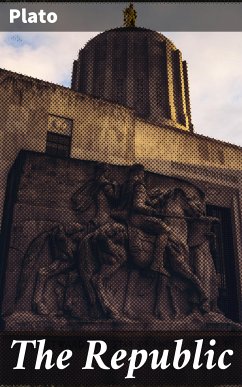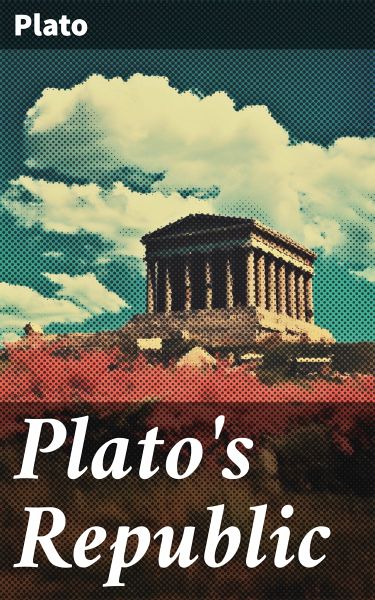
Plato's Republic (eBook, ePUB)
Enriched edition. Exploring Justice, Morality, and the Ideal State: A Philosophical Journey
Kommentar: Marchmont, Lydia / Redaktion: Good Press / Übersetzer: Jowett, Benjamin

PAYBACK Punkte
0 °P sammeln!
In "Plato's Republic," a foundational text of Western philosophy, Plato explores the nature of justice, the ideal state, and the role of the philosopher-king. Written as a dialogue primarily between Socrates and various interlocutors, the work delves into the complexities of moral and political philosophy, employing a dialectical method. Through allegories, such as the Allegory of the Cave, and intricate thought experiments, Plato constructs a vision of an ideal society governed by wisdom and reason, promoting the idea that knowledge must lead to virtue for a just society to be realized. This ...
In "Plato's Republic," a foundational text of Western philosophy, Plato explores the nature of justice, the ideal state, and the role of the philosopher-king. Written as a dialogue primarily between Socrates and various interlocutors, the work delves into the complexities of moral and political philosophy, employing a dialectical method. Through allegories, such as the Allegory of the Cave, and intricate thought experiments, Plato constructs a vision of an ideal society governed by wisdom and reason, promoting the idea that knowledge must lead to virtue for a just society to be realized. This seminal work reflects the intellectual vibrancy of Classical Athens, a milieu marked by political turmoil and the quest for moral foundations. Plato (c. 427-347 BCE), a student of Socrates and teacher of Aristotle, was profoundly influenced by his experiences in Athenian society and the philosophical inquiries of his time. His encounters with the democratic and oligarchic tensions in Athens, coupled with the execution of Socrates, catalyzed his reflections on governance and morality. "The Republic" not only seeks to define justice but also poses a critique of contemporary political realities, showcasing Plato's philosophical rigor and innovative approach. For readers seeking a profound inquiry into ethics, governance, and the philosophic life, "Plato's Republic" remains an indispensable text. It challenges us to reconsider our understanding of justice and the responsibilities of citizenship within society. Plato's articulation of the philosopher's role in politics is particularly salient in today's world, making this work essential for anyone interested in philosophy, political theory, or the ethical dimensions of human existence. In this enriched edition, we have carefully created added value for your reading experience: - A succinct Introduction situates the work's timeless appeal and themes. - The Synopsis outlines the central plot, highlighting key developments without spoiling critical twists. - A detailed Historical Context immerses you in the era's events and influences that shaped the writing. - An Author Biography reveals milestones in the author's life, illuminating the personal insights behind the text. - A thorough Analysis dissects symbols, motifs, and character arcs to unearth underlying meanings. - Reflection questions prompt you to engage personally with the work's messages, connecting them to modern life. - Hand-picked Memorable Quotes shine a spotlight on moments of literary brilliance. - Interactive footnotes clarify unusual references, historical allusions, and archaic phrases for an effortless, more informed read.
Dieser Download kann aus rechtlichen Gründen nur mit Rechnungsadresse in A, B, BG, CY, CZ, D, DK, EW, E, FIN, F, GR, H, IRL, I, LT, L, LR, M, NL, PL, P, R, S, SLO, SK ausgeliefert werden.





